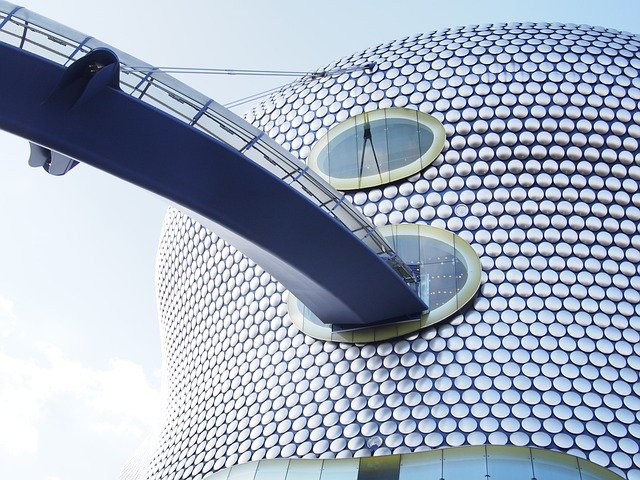Birmingham: Second Largest City of Uk
Certainly! Here’s a comprehensive blog post about Birmingham, the second-largest city in the UK. The blog will explore various aspects of Birmingham, including its history, culture, economy, educational landscape, and future prospects.
### **Outline**
1. **Introduction to Birmingham**
– Overview of Birmingham as the second-largest city in the UK.
– Its significance in the UK’s urban landscape.
2. **Historical Background of Birmingham**
– Early history and industrial revolution.
– Evolution from a market town to an industrial powerhouse.
3. **Economic Landscape of Birmingham**
– Current economic status.
– Key industries and sectors.
– Role as a financial and business hub.
4. **Cultural and Social Scene**
– Diversity and multiculturalism.
– Arts, music, and cultural institutions.
– Festivals and events.
5. **Education in Birmingham**
– Overview of primary and secondary education.
– Higher education institutions, including the University of Birmingham.
– Research, innovation, and student life.
6. **Birmingham’s Urban Development and Infrastructure**
– Recent developments and regeneration projects.
– Transportation networks and connectivity.
7. **Tourism and Attractions**
– Major tourist attractions.
– Hidden gems and local favorites.
8. **Birmingham’s Green Spaces and Environment**
– Parks and recreational areas.
– Environmental initiatives and sustainability efforts.
9. **Birmingham’s Role in the UK’s Political and Social Landscape**
– Influence on national politics and policy.
– Social movements and community activism.
10. **Future Prospects and Challenges**
– Economic and social challenges.
– Future growth and development plans.
11. **Conclusion**
– Recap of Birmingham’s status as the second-largest city.
– Its future outlook and continued evolution.
—
### **Blog Post: Birmingham – The Second Largest City of the UK**
#### **Introduction to Birmingham**
Birmingham, known as the second-largest city in the United Kingdom, is a dynamic and diverse metropolis that has played a crucial role in shaping the country’s economic, cultural, and social landscape. With a population exceeding 1.1 million, Birmingham is a vibrant city that blends a rich industrial heritage with a forward-looking vision. It is a city that is constantly evolving, embracing innovation while preserving its unique identity.
Located in the heart of England, Birmingham serves as a major hub for business, education, and culture. The city is renowned for its multiculturalism, with a rich tapestry of communities that contribute to its dynamic social fabric. Birmingham’s strategic location, extensive transportation network, and strong economic base make it a significant player in the UK’s urban hierarchy. As the city continues to grow and develop, it remains a key destination for tourists, businesses, and students from around the world.
#### **Historical Background of Birmingham**
Birmingham’s history is a fascinating tale of transformation, from a small market town in the medieval period to a thriving industrial powerhouse during the Industrial Revolution. The city’s journey began in the 12th century when it was granted a market charter, which laid the foundation for its growth as a commercial center. Over the centuries, Birmingham evolved into a hub for trade and commerce, thanks to its strategic location and access to key transportation routes.
The Industrial Revolution marked a turning point in Birmingham’s history, transforming it into the “workshop of the world.” The city became a center of innovation and manufacturing, producing everything from textiles to machinery. Birmingham’s reputation as an industrial city was further cemented by its pioneering role in the development of the steam engine and the expansion of its canal network, which facilitated the transport of goods. The city’s industrial growth was accompanied by rapid urbanization, leading to significant social and economic changes.
Despite the decline of traditional industries in the late 20th century, Birmingham has successfully reinvented itself as a modern, diversified economy. Today, the city is a thriving hub for finance, education, technology, and culture, building on its rich heritage to create a dynamic future. The resilience and adaptability that have characterized Birmingham’s history continue to drive its growth and development, ensuring its place as one of the UK’s leading cities.
#### **Economic Landscape of Birmingham**
Birmingham’s economy is one of the most diverse and dynamic in the UK, with a strong emphasis on innovation, entrepreneurship, and investment. The city has moved beyond its industrial roots to become a major center for finance, professional services, digital technology, and advanced manufacturing. Birmingham is home to a thriving business community, with a mix of large multinational corporations, innovative startups, and small to medium-sized enterprises (SMEs) that contribute to its economic vitality.
Key sectors driving Birmingham’s economy include financial and professional services, which employ thousands of people and generate significant economic output. The city’s central location and excellent connectivity make it an attractive destination for businesses looking to access both domestic and international markets. Birmingham’s financial district, located in the city center, is home to numerous banks, law firms, and consultancy agencies, reinforcing its status as a financial hub.
In addition to finance, Birmingham is also known for its thriving technology and digital sector. The city is emerging as a hub for tech innovation, with a growing number of tech startups and established firms operating in areas such as fintech, digital media, and cybersecurity. The development of the Birmingham Tech Hub and other innovation centers has further strengthened the city’s position as a leader in the digital economy.
Manufacturing remains a vital component of Birmingham’s economy, with a focus on high-value, advanced manufacturing. The city is a key player in the automotive industry, home to major manufacturers like Jaguar Land Rover and a host of supply chain companies. Birmingham’s advanced manufacturing sector is characterized by its use of cutting-edge technologies and a strong emphasis on research and development, positioning the city at the forefront of innovation in the sector.
#### **Cultural and Social Scene**
Birmingham is a city that prides itself on its rich cultural diversity and vibrant social scene. The city’s multiculturalism is one of its defining characteristics, with a diverse population that includes communities from all over the world. This cultural diversity is reflected in Birmingham’s thriving arts scene, which encompasses everything from theater and music to visual arts and literature.
The city is home to a number of world-class cultural institutions, including the Birmingham Museum and Art Gallery, the Birmingham Royal Ballet, and the Symphony Hall. These institutions offer a wide range of cultural experiences, from classical music and ballet to contemporary art and exhibitions. Birmingham’s music scene is particularly renowned, with a rich history that includes influential genres such as reggae, punk, and heavy metal.
In addition to its established cultural institutions, Birmingham is also known for its vibrant street art, independent galleries, and grassroots arts organizations that contribute to its dynamic cultural landscape. The city hosts a variety of festivals and events throughout the year, celebrating everything from food and music to literature and film. Notable events include the Birmingham Literature Festival, the Birmingham International Jazz Festival, and the annual Birmingham Pride, which celebrates the city’s LGBTQ+ community.
Birmingham’s culinary scene is equally diverse, offering a wide range of dining options that reflect the city’s multicultural makeup. From traditional British fare to international cuisines, Birmingham’s restaurants, cafes, and street food markets offer something for every palate. The city is particularly famous for its “Balti Triangle,” an area renowned for its South Asian cuisine, and has been hailed as the curry capital of the UK
#### **Education in Birmingham**
It is home to a vibrant and diverse educational landscape, with a wide range of institutions that cater to students of all ages and backgrounds. The city’s commitment to education is evident in its numerous primary and secondary schools, many of which are recognized for their academic excellence and innovative teaching methods. Birmingham’s schools are known for their focus on inclusivity, providing a supportive environment for students from diverse backgrounds.
The city is also a hub for higher education, with several world-renowned universities that attract students from around the globe. The **University of Birmingham**, a prestigious Russell Group institution, is known for its research-led teaching and strong emphasis on innovation. The university offers a wide range of undergraduate and postgraduate programs across various disciplines, including arts, sciences, engineering, and social sciences. Its campus, located in the leafy Edgbaston area, provides a beautiful setting for learning and research.
In addition to the University of Birmingham, the city is home to other leading institutions such as **Aston University** and **Birmingham City University**. Aston University is renowned for its focus on employability and practical learning, offering programs that are designed to equip students with the skills and knowledge required for the modern workplace. Birmingham City University, on the other hand, is known for its strong emphasis on creativity and innovation, particularly in fields such as art, design, media, and music.
It’s universities are also at the forefront of research and innovation, contributing to advancements in areas such as healthcare, engineering, and social sciences. The city’s commitment to research excellence is reflected in its numerous research centers and institutes, which collaborate with industry, government, and community partners to address some of the most pressing challenges facing society today.
#### **Birmingham’s Urban Development and Infrastructure**
In recent years, It has undergone significant urban development and regeneration, transforming its cityscape and enhancing its infrastructure. The city has invested heavily in revitalizing its city center, creating a more attractive and functional urban environment that supports both business and leisure. Major projects such as the redevelopment of New Street Station, the expansion of the Bullring shopping center, and the creation of the Grand Central retail complex have helped to redefine It’s urban landscape.
It’s commitment to improving its infrastructure is also evident in its extensive transportation network, which provides excellent connectivity both within the city and to other parts of the UK and beyond. The city is served by Birmingham New Street, one of the busiest railway stations in the country, as well as several other key stations that connect it to major cities such as London, Manchester, and Edinburgh. The planned HS2 high-speed rail project is set to further enhance It’s connectivity, reducing travel times to London and other key destinations.
In addition to its rail network, It is also well-served by its road and public transport infrastructure. The city’s extensive bus network provides comprehensive coverage across the city, while the Midland Metro tram system connects key areas within City and extends to nearby towns and cities. City Airport, located just a short distance from the city center, offers direct flights to numerous domestic and international destinations, making the city an accessible hub for both business and leisure travelers.
#### **Tourism and Attractions**
It is a city that offers a wealth of attractions and experiences for visitors, from its rich cultural heritage and vibrant arts scene to its diverse dining options and world-class shopping. One of the city’s most iconic attractions is the **City Museum and Art Gallery**, home to an extensive collection of fine art, ceramics, metalwork, and artifacts that span centuries of history. The museum is particularly renowned for its collection of Pre-Raphaelite paintings, one of the largest in the world.
For those interested in exploring It’s industrial heritage, the **Thinktank City Science Museum** offers a fascinating insight into the city’s history of innovation and invention. The museum features interactive exhibits and displays that showcase It’s contributions to science, technology, and industry, making it a great destination for visitors of all ages.
It is also home to a number of unique attractions that reflect its diverse cultural landscape. The **City Back to Backs**, a National Trust property, offers a glimpse into the lives of working-class families in the 19th and early 20th centuries, while the **Jewellery Quarter** is a historic district renowned for its workshops, boutiques, and museums dedicated to the art of jewelry making.
For those looking to enjoy the great outdoors, It offers a range of parks and green spaces that provide a welcome respite from the hustle and bustle of city life. **Cannon Hill Park**, **Sutton Park**, and the **City Botanical Gardens** are just a few of the city’s many green spaces, offering beautiful landscapes and recreational opportunities for visitors and residents alike.
#### **Birmingham’s Green Spaces and Environment**
It is a city that takes pride in its green spaces and commitment to environmental sustainability. With over 8,000 acres of parks and green spaces, It is one of the greenest cities in the UK, offering residents and visitors ample opportunities to enjoy nature and outdoor activities. The city’s parks, such as **Cannon Hill Park**, **Sutton Park**, and **Lickey Hills Country Park**, provide beautiful settings for picnics, sports, and leisurely strolls.
In addition to its parks, It is also home to a number of initiatives aimed at promoting environmental sustainability and green living. The city has implemented a range of policies and programs designed to reduce carbon emissions, improve air quality, and promote sustainable transport options. Birmingham’s Clean Air Zone, introduced in 2021, is a key part of the city’s efforts to tackle air pollution and create a healthier environment for its residents.
The city is also investing in renewable energy and green infrastructure, with projects such as the Birmingham District Energy Scheme, which provides low-carbon heating and power to city center buildings. It’s commitment to sustainability is further reflected in its participation in initiatives such as the UK100, a network of local leaders committed to achieving 100% clean energy by 2050.
#### **Birmingham’s Role in the UK’s Political and Social Landscape**
It has long been a significant player in the UK’s political and social landscape, with a rich history of political activism and social reform. The city has been the birthplace of numerous social movements and has played a key role in shaping national policy and debate. It’s diverse population and strong sense of community have contributed to its reputation as a city that is not afraid to challenge the status quo and advocate for change.
The city’s political landscape is characterized by its diversity and inclusivity, with representatives from a range of political parties and backgrounds. It is home to several Members of Parliament (MPs) who represent the city in the UK Parliament, and the city’s local government, Birmingham City Council, is one of the largest in Europe. The council is responsible for providing a wide range of services to the city’s residents, from education and housing to transport and environmental management.
It is also known for its active civil society, with numerous community organizations, advocacy groups, and charities working to address social issues and promote equality and justice. The city’s strong tradition of social activism is evident in its response to contemporary challenges such as climate change, social inequality, and community cohesion. It’s commitment to social justice and equality is reflected in its status as a **City of Sanctuary**, a designation that recognizes its efforts to welcome and support refugees and asylum seekers.
#### **Future Prospects and Challenges**
Looking ahead, It’s faces both opportunities and challenges as it continues to evolve and grow. The city’s strong economic base, diverse population, and commitment to innovation and sustainability provide a solid foundation for future growth and development. However, It must also address a number of challenges, including social inequality, housing affordability, and the need for continued investment in infrastructure and public services.
The city’s future growth will be shaped by its ability to attract and retain talent, foster innovation, and promote sustainable development. Key initiatives such as the **City Development Plan** and the **Big City Plan** outline a vision for the city’s future, focusing on areas such as housing, transport, and economic development. These plans aim to create a more inclusive, sustainable, and prosperous City that can continue to thrive in the 21st century.
It’s continued success will also depend on its ability to adapt to changing economic, social, and environmental conditions. The city’s resilience and adaptability have been key to its past successes, and these qualities will be essential as it navigates the challenges and opportunities of the future. By building on its strengths and addressing its challenges, City can continue to play a leading role in the UK’s urban landscape.
Conclusion
the second-largest city in the UK, is a dynamic and diverse metropolis that continues to evolve and grow. With its rich history, vibrant cultural scene, strong economy, and commitment to innovation and sustainability, It is a city that is well-positioned to face the challenges and opportunities of the future. As it continues to build on its strengths and embrace new possibilities, It’s remains a key player in the UK’s urban landscape, a city that is truly at the heart of England.
—
This blog post provides a comprehensive overview of It, highlighting its rich history, diverse culture, strong economy, and future prospects. It also explores the city’s challenges and opportunities, providing a balanced and informative perspective on It’s role as the second-largest city in the UK.
The Second-Biggest city in England, is a bustling metropolis known for its diverse
population, vibrant Cultural scene, and rich industrial past. Birmingham, Which was formerly the hub of the Industrial Revolution, blends modern technology with traditional charm.
The skyline, which
blends Victorian and modern architecture, shows how the city changed from being a manufacturing
powerhouse to a centre of culture and trade. Best Cuisines of It’s you must try,
It’s diverse Population and rich cultural legacy are reflected in the delectable range of
flavours and cuisines Found in the city’s culinary scene.
The city is Well-Known for its Balti Triangle,
where a range of eateries provide authentic Bali cuisine, which are Kashmiri curry recipes. The Balti
experience is a must-try, with spicy and aromatic meals served in classic metal bowls. Beyond Balti,
It’s boasts a strong street food scene, with markets such as Dig Beth Dining Club offering
gourmet fare from around the globe. In the city’s culinary culture, Michelin-starred restaurants
exhibiting creative British cuisine co-exist with cosy pubs providing Substantial mainstays like pies
and roasts.
Whether Savouring local specialities or experimenting with cuisines from around the
globe Wander around the Jewellery Quarter, A charming district Noted for its artisan jewellery shops
and exquisite workmanship, or visit the magnificent It’s museum and Art Gallery, Home to
an enormous Collection of Art work and Antiques. It’s Hippodrome and Symphony hall host
World-Class Events, and Bullring and Grand Central offer First-Rate Shopping. City offers a
wealth of Attractions that Appeal to History Buffs, art enthusiasts, and shoppers alike. A fantastic
site to begin your Research is the It’s museum and Art Gallery, which houses an incredible
Collection of Art-Work and Relics Spanning Centuries.
The adjacent historic Jewellery Quarter entices
with its fascinating past and abundance of Jewellery shops where you may watch skilled artisans at
work. For a taste of It’s industrial past, Visit the Black Country Living museum, an out-door
museum that recreates life in the Region during the Industrial Revolution. The Library of It’s
Dominates the Modern Sky-line with its futuristic architecture and large Roof-Top terrace
Overlooking the City.
Shoppers will be enthralled with the vibrant market places and upscale
boutiques at The Bullring & Grand Central. Finally, but just as importantly, don’t miss It’s Botanical Gardens, a tranquil sanctuary with rare plants and peaceful environs that provide a revitalising break. For anybody interested in History, Culture, Shopping, or the great outdoors, Birmingham promises to be an outstanding Experience with its distinctive blend of Old-World charm and contemporary attractions. Explore It’s unique personality and dynamic cultural Environment, Complete with bustling marketplaces, A wide range of culinary options, and a rich Past. Top Ten Cities in Uk.
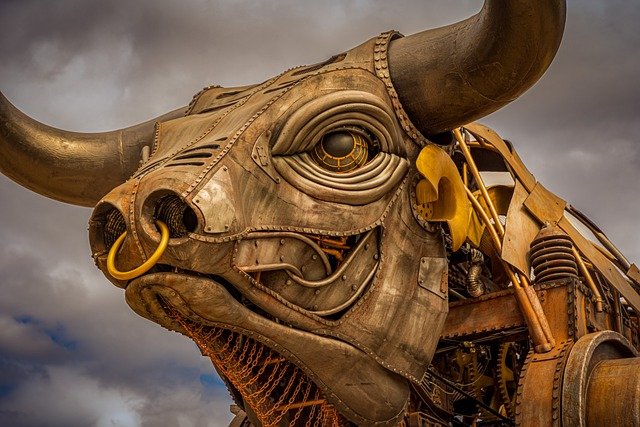

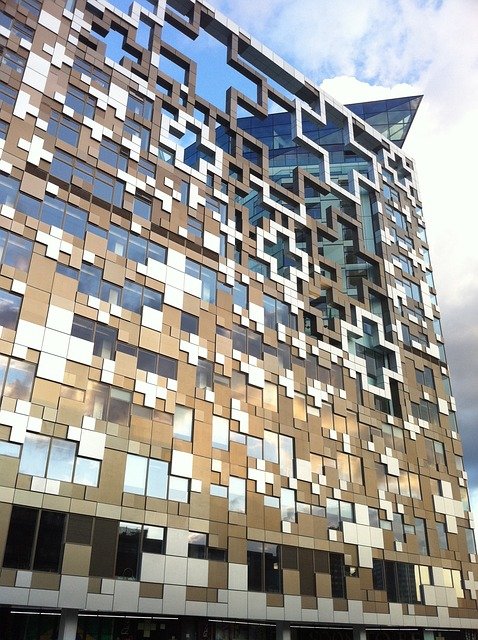

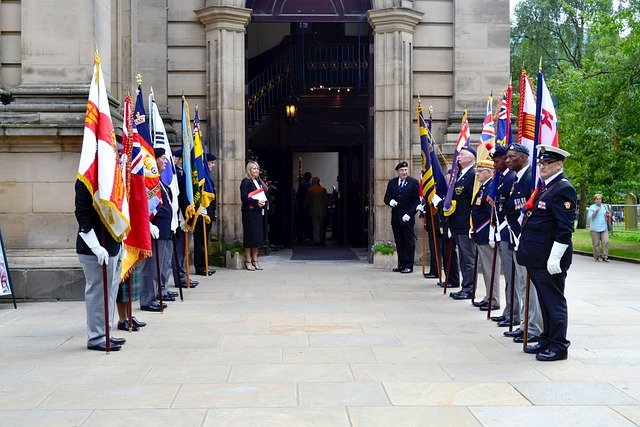

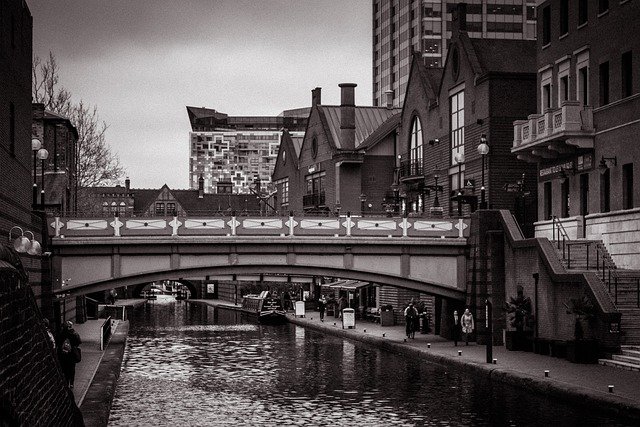
Major Points:
Birmingham uk
Birmingham uk time
Birmingham uk hotels
Birmingham uk news
Birmingham uk weather
Birmingham uk post code
Birmingham uk postal code
Birmingham uk zip code
Birmingham uk population
Birmingham uk to london
Birmingham uk airport
Birmingham uk travel
Birmingham uk university
Birmingham uk images
FAQs
Birmingham is famous i dont know why?
Birmingham is a city of scientist and manufacturer of many products
Birmingham is expensive or london?
London is most expensive
why people say black country to birmingham?
because its a manufacturer of many products and because of black smoke in 19th century clouds seems black

